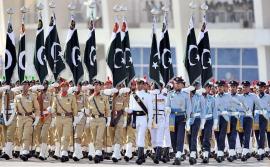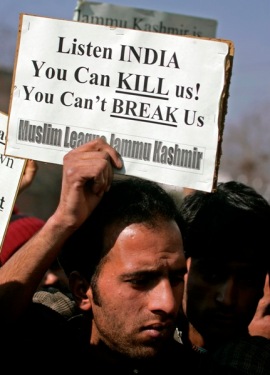The Planning of War Behind Closed Doors
February 7, 2010 1 Comment
Brussels, London, Istanbul: A Week Of Western War Councils
 Rick Rozoff: The defense chiefs of all 28 NATO nations and an undisclosed number of counterparts from non-Alliance partners gathered in Istanbul, Turkey on February 4 to begin two days of meetings focused on the war in Afghanistan, the withdrawal of military forces from Kosovo in the course of transferring control of security operations to the breakaway province’s embryonic army (the Kosovo Security Force) and “the transformation efforts required to best conduct the full range of NATO’s agreed missions.” [1]
Rick Rozoff: The defense chiefs of all 28 NATO nations and an undisclosed number of counterparts from non-Alliance partners gathered in Istanbul, Turkey on February 4 to begin two days of meetings focused on the war in Afghanistan, the withdrawal of military forces from Kosovo in the course of transferring control of security operations to the breakaway province’s embryonic army (the Kosovo Security Force) and “the transformation efforts required to best conduct the full range of NATO’s agreed missions.” [1]
Istanbul was the site of the bloc’s 2004 summit which accounted for the largest expansion in its 60-year history – seven new Eastern European nations – and its strengthening military partnerships with thirteen Middle Eastern and African nations under the Istanbul Cooperation Initiative.
The Chairman of the NATO Military Committee, Admiral Giampaolo Di Paola, NATO’s Supreme Allied Commander Europe Admiral James Stavridis and the top commander of all U.S. and NATO troops in Afghanistan – soon to reach over 150,000 – General Stanley McChrystal are also in attendance, as are European Union High Representative for Foreign Affairs and Security Policy Catherine Ashton and United Nations High Representative for Afghanistan Kai Eide as well as the defense and interior ministers of Afghanistan.
The meetings follow by a week the International Conference on Afghanistan held in London, which in turn occurred the day after two days of meetings of the NATO Military Committee with the Chiefs of Defense of the military bloc’s 28 member states and 35 more from what were described as Troop Contributing Nations; presumably NATO partner nations with troops stationed in the Afghan war theater. In all, the military chiefs of 63 countries.
The U.S.’s McChrystal was present there also as were Israeli Chief of General Staff Lieutenant General Gabi Ashkenazi and Pakistani Chief of Army Staff General Ashfaq Parvez Kayani. Beforehand the bloc’s website reported that “The various meetings will focus on the progress made in ongoing operations and the New Strategic Concept for NATO.” [2] That 35 top military commanders from non-NATO countries were present to hear plans for the escalation of what is already the largest war in the world is understandable, as their forces are on the ground as part of a 50-nation plus force under NATO military command. Read more of this post



































Recent Comments